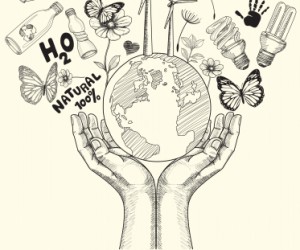The government signed contracts in November with 28 independent power producers for the delivery of 400MW of renewable energy to the national grid, bringing an investment worth R47 billion into the energy sector.
Government’s 20-year Integrated Resource Plan for renewable energy includes solar, wind, biomass and biogas projects. A second group of 19 preferred bidders has been announced for window two of the procurement programme, and this will soon be followed by window three.
“We have limited experience of renewable energy projects in this country,” says Burmeister. “For this reason, virtually all the new projects are joint ventures with international companies. Yet senior executives of these partner companies are battling to get work permits.
“The quota for work permits for foreigners with ‘scarce and critical’ skills does not appear to make any provision for skills in renewable energy. In addition, tough immigration laws tend to discourage migrants.
“We need to bring people in to build these facilities. We did so for the construction of the Gautrain and the World Cup 2010 stadiums. It’s critical to make the sourcing of skills a standard part of any bid.
Underpinning the importance of this sector, three US government agencies have established a Clean Energy Development and Finance Centre in Johannesburg to support the development of renewable energy projects across sub-Saharan Africa.
“Delays in obtaining business work permits can set projects back by months,” says Burmeister. “The criteria used by the Department of Home Affairs must be aligned with national requirements. The independent power producer programme emphasises skills transfer and stresses the benefits it will bring to the local population. But skills transfer is achievable only if we have access to appropriate skills and experience at the outset.
“The US and Singapore are examples of countries that have placed a premium on importing skilled migrant labour. This has led to rapid growth of their economies.
“The development of renewable energy is regarded as being in the national interest, but the rewards of the programme will be achieved only with the alignment of all government departments involved.”
About Landelahni
Established in 1997, Landelahni was the country’s first black-owned and women-owned executive search company. Today, the Landelahni Recruitment Group consists of a number of companies offering recruitment, assessment and coaching services in both the public and private sectors.
The group consists of:
- Landelahni Business Leaders (Amrop SA) – executive and non-executive director search
- Landelahni Leadership Development – board and executive coaching and mentoring
- Landelahni Assessments – executive and management assessments to identify leadership potential
- Landelahni Professional and Technical Appointments – large project professional and technical recruitment
- Landelahni Workforce Management – on-site managed staffing.
Since inception, Landelahni has built a substantial track record in the appointment of black executives and more than 40% of the executive appointments made by Landelahni are black women.










